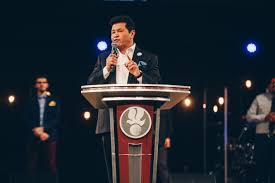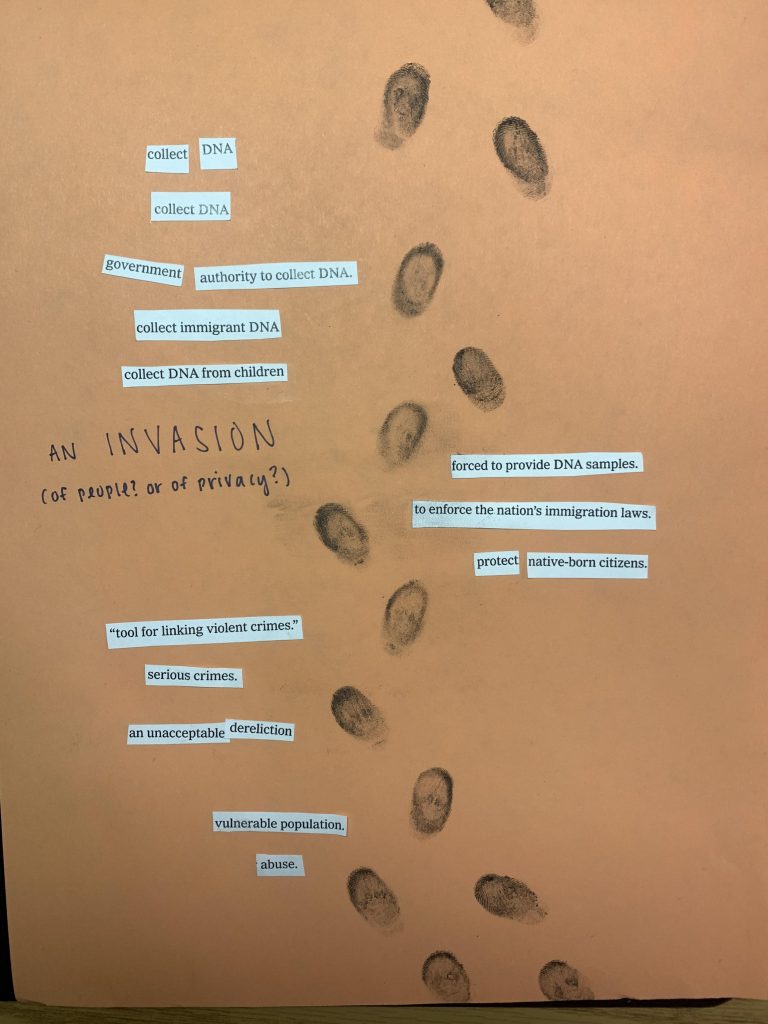
Power. The ability to perform or act a certain way, particularly as a faculty, meaning an authoritative figure. The word power was originally derived from the Latin word potere, which means “to be able.” Our definition and use of power is much more than to just “be able,” but to exert a large amount of force or to have authority over a person or groups of people. There have been numerous instances where individuals who contain such amounts of power take advantage. This is where the negative connotations of the word begin. No one who is actually sane wants to contain all the power that is possible to have. There are those who do, and use this to their own benefit without the worry of others. Stories such as Zong! exert examples on power within their historical backgrounds. The Transatlantic Slave Trade as well as our days in the Jim Crow laws, to modern day racism are real-life examples that exemplify the abusive nature of these people. However, on the other hand, a positive side of power is that it has the ability to tell stories for those that cannot or are not ready. This side of power is unique in storytelling and it allows for the author to articulate what might have been lost in history or their own memories. Due to the freedom and ambiguity of storytelling, an author is able to convey ideas of their own or they may represent others. Power is the center of all of these concepts, and here is why.
In the 15th century, amidst the Transatlantic Slave Trade, wealthy and predominantly white nations wreaked havoc on African societies. An estimated amount of 25 million Africans were forced out of their own country and enslaved into Western along with Arab nations. The forced transportation of these human beings resulted in an extremely uneven division of power among white nations and Africans. Zong!, a collection of found poems written by M. NourbeSe Philip serves as a narrative of the brutal treatment the African slaves faced particularly in 1781. A slave ship under the name of Zong and its crew were found guilty when they claimed they had lost the slaves at sea. In actuality, the crew made navigational mistakes leading them to lose out on various resources. In order to salvage their resources for the rest of the passengers and more importantly, collect the insurance money for ‘lost cargo,’ the crew decided to throw overboard the sick and dying slaves into the treacherous sea. More than 130 lives were lost that day, all because of the slavers’ greed and power over the slaves.
Zong! Page 44
Philip uniquely features the authority of the slavers over the slaves in Africa. By stating the subject of the crew and captain, she introduces other verbs like ‘authorize’ and ‘justify.’ These two words are empowering, and as readers, we can piece together these words to deduce that the crew and captain are the ones with the authority. Since they are higher on the social pyramid, they have the capability to defend their actions, especially when the victims are all lost at sea.
This tragedy is often left out of historical remembrances and curricula and therefore, the voices of the slaves are forgotten and sometimes never even heard. This is likely due to the fact that the slaves were not seen as human beings, for they were thrown overboard like they were worthless. The names of these slaves will never be recounted on or even remembered, because the slavers held these human beings to the same value as cargo. The only voices that can recount on this traumatic incident are the perpetrators, or the ones with the power to speak. A famous abolitionist known as Granville Sharp attempted to bring charges of murder into the trial of Gregson v. Gilbert. However, the case ignored his pleas and recognized the slaves as merely chattel property: “…neither Captain Collingwood nor those who had helped in the massacre could be charged with murder, since what was destroyed, being property, was not capable of being murdered” (191).
In an attempt to give the powerless slaves a voice, Philip creates found poems that highlight the despair of the slaves. Again, this merciless act is not often included in curricula, so who is there to speak about this significant, historic event? Philip tackles this task and picks up the responsibility of empowering the slaves’ voices in her found poems.
Zong! Page 8
Instead of writing long passages about what may have happened in the tragedy, Philip utilizes the structure of found poems. In doing this, Philip emphasizes the idea that there are no proper amount of words or paragraphs to express the agony of the slaves after and during the happening. Words such as ‘water,’ ‘sea,’ ‘lying dead,’ ‘of months,’ ‘of weeks,’ and ‘of days’ immediately point to descriptions of suffering. She focuses on the words that truly sums up the probable feelings and thoughts of the slaves and allows the reader to piece them together to create his/her/their own narrative. Philip allows the reader to essentially create their own feeling of helplessness and attribute that to the slaves in 1781. This unique style places emphasis on the power of literature, specifically found poems. Thus, Philip speaks on behalf of the helpless slaves, for they have been practically erased from history.
The incident in 1781 exemplifies the merciless abuses of colonialism, the practice by which a powerful country controls another country or other countries (OED). Not only does power play a part in the relationship between a so-called superior being, but it also relates to the power of literature and storytelling. Dating back to the 15th century, power has been used to enhance voices that have talked enough and silence those that have not talked enough. Philip’s unique style of language in Zong! brings that silence to life while speaking for the lives that were lost in this catastrophic incident due to the overwhelming disparity of power.
The Woman Warrior by Maxine Hong Kingston is a memoir showing the difficulties of growing up in the United States as a Chinese-American. She is caught between the social norms of an American teenager and her Chinese culture, as being Chinese-American often means that one might feel a sense of mis-belonging. Kingston feels that she does not fit into either culture and therefore, feels discourse in her life. In order to compensate for her feelings of alienation, Kingston relies on power to reinforce her self-worth and identity in Chinese culture. Throughout her stories of her childhood, Kingston would start to tell fictional stories that may or may not have been true. She would become a strong, and powerful leader who leads her troops to greater. Kingston marks her sense of empowerment when she states that “I inspired my army, and I fed them. At night I sang to them glorious songs that came out of the sky and into my head” (37). Kingston loved to fantasize about being the most feared but loved warrior that ever walked the earth. This was a major learning experience for Kingston. She learned both about the danger of power through Brave Orchid, and how good it feels to be powerful through her fantasized stories about herself. Understanding the importance of power is critical in analyzing this part of the story. Her life has been a confusing journey between two cultures and her escapism through her stories in The Woman Warrior allow her and the reader to feel the empowerment inside of her. Fantasizing about control and power gave her an outlet to believing her self-worth.
As instances in Zong! demonstrated possessing too much power, or having absolutely none at all, there are examples seen further in Zong! and The Woman Warrior that reveal the positive side of power, particularly in storytelling. There is not one definition of power due to the various instances it has been seen in. From traditions to historical events to storytelling, power is spread all around and used in different forms whether it is bringing the harsh times of colonialism to light or it is expressing the author’s feelings about her life. With vivid examples such as the Transatlantic Slave Trade and Kingston’s account on her childhood, we have the ability to see how power unfolds in these situations secondhand. It is important to educate ourselves on the many notions that consume our modern day society, as well as literature. Power.
Works Cited
Kingston, Maxine H. The Woman Warrior: Memoirs of a Childhood among Ghosts.
Vintage, 1989.
Philip, M. NourbeSe. Zong! Wesleyan University Press, 2008.
Power (n.). (n.d.). Retrieved from https://www.etymonline.com/word/power.
OED Online. Oxford University Press, September 2019. Web. 21 October 2019.

